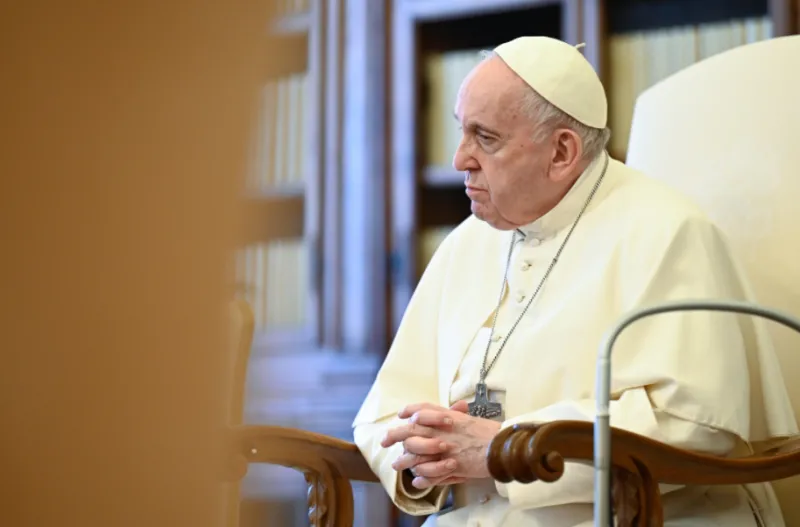
Rome Newsroom, May 25, 2021 / 05:10 am (CNA).
Pope Francis said on Tuesday that he was praying for the five-year-old survivor of a cable car accident in northern Italy, as well as the 14 people killed in the disaster.
A telegram released May 25 said that the pope had learned of the incident “with great sorrow” and wished to express his heartfelt condolences to the victims’ families.
It said he was saddened that “so many lives [were] tragically cut short while immersed in the wonder of creation” and would be praying for those killed, their relatives, and “little Eitan,” the accident’s sole survivor.
The pope said that he would be following the condition of Eitan’s health “with concern,” as he recuperates in a hospital with leg and head injuries.
The cable car accident occurred a day after Italy allowed the reopening of ski lifts and cable cars after months of closure due to the country’s ongoing COVID-19 restrictions.
The cable car had been carrying visitors from the town of Stresa up the Mottarone mountain on the afternoon of May 23 when it broke, plunging around 65 feet before it hit the mountain side.
The Italian news agency ANSA reported that the cable car’s occupants were from five families, including one from Israel.
Israel’s foreign ministry named the five Israelis who died as Eitan’s father Amit Biran, 30, his mother Tal Peleg-Biran, 26, and his brother Tom Biran, aged two, as well as Ms Peleg-Biran’s grandparents, Barbara Cohen Konisky, 70, and Yitzhak Cohen, 82.
The papal telegram was sent by Cardinal Pietro Parolin, the Vatican’s Secretary of State, to Bishop Franco Giulio Brambilla of Novara, whose diocese includes the area where the accident occurred.
“His Holiness participates in a special way with the suffering of the local community and of the Diocese of Novara, and he embraces the beloved Italian people, saddened by this grave tragedy,” the telegram said.
The pope offered his apostolic blessing to all mourners.
Italian bishops have also offered their condolences and the assurance of their prayers.
The Italian government announced on Monday that it was launching an investigation into the incident, with potential for manslaughter charges.
The authorities have said that they do not suspect sabotage, but that there could have been either human error or maintenance issues. In addition to the broken cable, an emergency braking system also failed.
According to local media, the cable car had been operating without problems since April 26.
In a May 23 message of condolence, Italian President Sergio Mattarella called for increased dedication to maintenance.
“The tragic accident at the Stresa-Mottarone cable car arouses deep pain for the victims and great apprehension for those who are fighting for their lives in these hours,” he said.
“I express to the affected families and communities in mourning the participation of the whole of Italy. These sentiments are accompanied by the call for strict compliance with all safety regulations for all conditions concerning the transport of people.
If you value the news and views Catholic World Report provides, please consider donating to support our efforts. Your contribution will help us continue to make CWR available to all readers worldwide for free, without a subscription. Thank you for your generosity!
Click here for more information on donating to CWR. Click here to sign up for our newsletter.





Leave a Reply